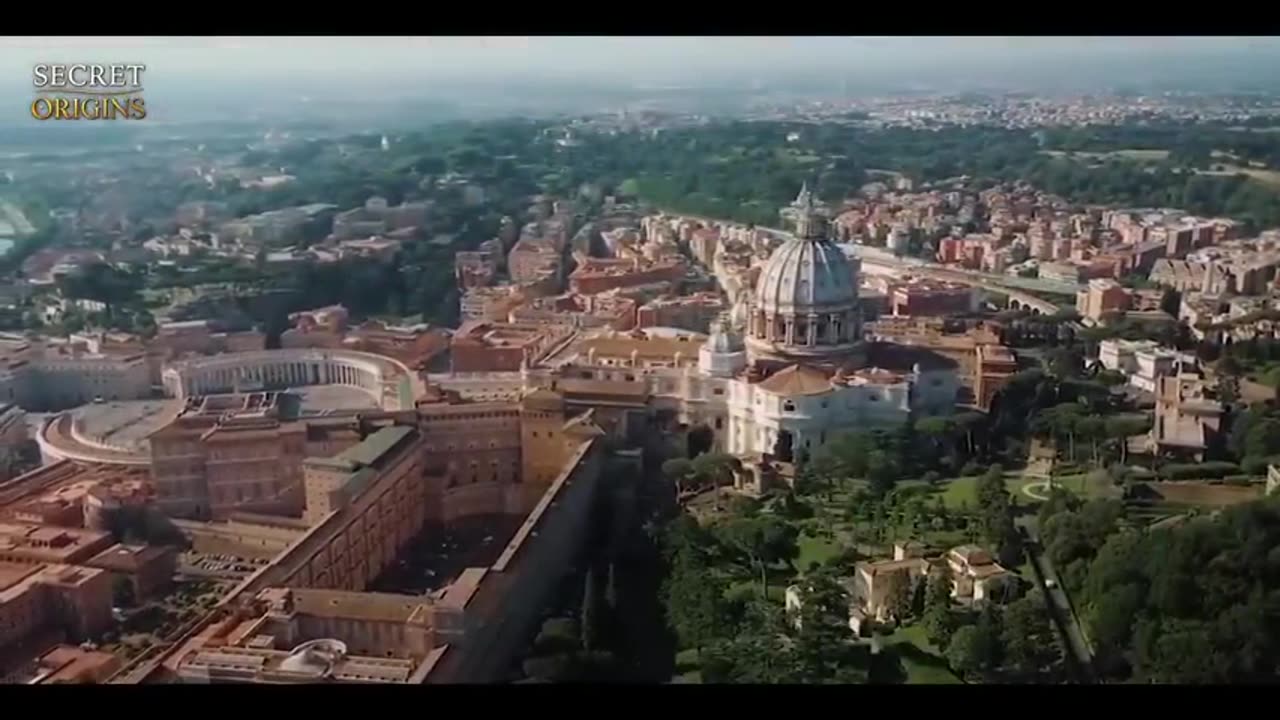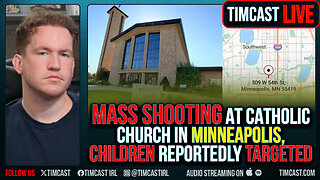Premium Only Content

Darkest Secrets Of The Vatican Archives Buried For Centuries ~ by Secret Origins (1.22.23
Darkest Secrets Of The Vatican Archives Buried For Centuries ~ by Secret Origins (1.22.23)
In this episode, we are going to uncover the mysterious secrets of the Vatican archives. The Secret Archives of the Vatican are a labyrinth of ancient texts, lost documents and objects that are kept strictly guarded for centuries. Some believe that these archives hold the key to secret powers, societies, and even contact with intelligent beings outside our planet. Join us as we explore the oldest documents dating back to the 8th century and uncover the secrets surrounding the Vatican's immense influence over history.
SUBSCRIBE for more documentaries: / @secretorigins9346
The Vatican is the smallest country in the world but also one of the most mysterious. A country where only about 1000 people live and there is not a single hospital. The Vatican Museums, the Sistine Chapel, Raphael's Rooms, St. Peter's Basilica and the breathtaking architecture of one of the most historic places in human history. And yet the most interesting thing is not what lies on the surface, but what lies beneath.
It is there that the secret archives are located in a place inaccessible to ordinary people. The archives of the Vatican are amazing. They are a true labyrinth of corridors and floors, full of books, scrolls, and individual sheets. It is estimated that if all the contents of the archive were arranged in a straight line, it would exceed 80 kilometers. Ancient texts, lost documents, objects, over two hundred thousand manuscripts and a bunch of other things that are kept extremely strictly.
Of course, as with any other secret, there are various theories about the secret archives. Some believe that the Vatican has long had contact with intelligent civilizations outside our planet and is working with them. That in the ancient archives lies a slightly different story. A history of secret powers, societies and apocalyptic prophecies.
Already in the first century, the Catholic Church began to make its notes, and as they were entrusted to the first popes, they assumed the commitment and responsibility of carrying them everywhere with them. With the spread of religion and the rapid accumulation of archives, the Church was forced to start storing them somewhere, and decided that it would be the home of the Pope. So when a Pope dies, his successor will be able to continue the work of his ancestors.
-
 19:03
19:03
joegecko's Proxy Channel
1 day agoRussians Advance In Zaporizhzhia Direction🚀No More Starlink For Ukraine?⭕MS For 25.08.2025
91 -
 1:03:00
1:03:00
Sean Unpaved
2 hours agoCFB Deep Dive: Matt Moscona's Expert Takes on the Gridiron
9.88K -
 27:39
27:39
Crypto.com
1 day ago2025 Live AMA with Kris Marszalek, Co-Founder & CEO of Crypto.com
84.8K4 -
 LIVE
LIVE
SternAmerican
22 hours agoElection Integrity Call – Wed, Aug 27 · 2 PM EST | Featuring Arizona
219 watching -
 1:00:05
1:00:05
Timcast
2 hours agoMASS SHOOTING At Catholic Church In Minneapolis, Children Reportedly Targeted
111K74 -
 1:34:01
1:34:01
Tucker Carlson
1 hour agoChristopher Caldwell: Is It Too Late to Save the English-Speaking World?
5.58K28 -
 2:14:40
2:14:40
Steven Crowder
4 hours agoBreaking: Minneapolis Catholic Church Shooting Live Coverage
314K300 -
 LIVE
LIVE
Major League Fishing
5 days agoLIVE! - Fishing Clash Team Series: Challenge Cup - Day 4
291 watching -
 25:03
25:03
Neil McCoy-Ward
1 hour agoFURY As JD Vance Unleashes HELL On The UK & EU… (What We Know So Far)
3.48K6 -
 LIVE
LIVE
IrishBreakdown
2 hours agoNotre Dame vs Miami Preview - Inside the Matchup
5 watching